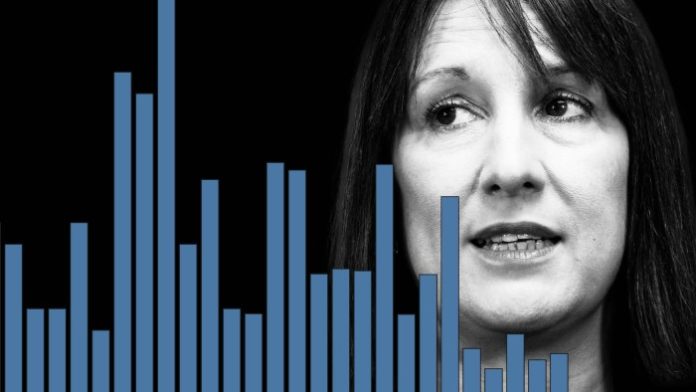Less than three months after delivering her first Budget, Rachel Reeves is facing challenges as rising UK borrowing costs limit her flexibility.
There is a real possibility that the chancellor will need to implement stricter fiscal policies as early as March, when the Office for Budget Responsibility releases its forecasts, in order to adhere to her self-imposed budget constraints.
This poses a problem for the Labour government, given Reeves’ assertion that her October fiscal statement was a significant step towards addressing the UK’s fiscal challenges.
How did the UK get off track?
The main issue is the increasing government borrowing costs in the UK and globally. The US has influenced the global bond sell-off in recent months, driven in part by expectations of inflation due to tariffs imposed by US president-elect Donald Trump.
The UK is particularly affected by concerns from fund managers about the potential for “stagflation”, where persistent price pressures hinder the Bank of England from lowering interest rates to stimulate the economy.
This, combined with higher expected debt sales post-Budget, has pushed the UK’s 10-year and 30-year borrowing costs to their highest levels in years, triggering weakness in the pound as well.
Jim McCormick, a macro strategist at investment bank Citi, expressed concerns about potential UK recession or fiscal challenges due to the pressures on bond markets and currency.
Why is this problematic?
The increased cost of borrowing directly impacts Reeves’ budget plans by raising interest payments, which already exceed £100bn annually.
Reeves aims to balance the current budget, excluding investment spending, by 2029-30. However, higher interest costs endanger this goal, with longer-dated gilt yields on the rise.
Ruth Gregory, an economist at consultancy Capital Economics, estimated that these movements could jeopardize meeting the current budget rule by almost £1bn.
Factors such as BoE interest rate expectations and 20-year gilt yields play a role in this calculation.
Are there other factors affecting public finances?
OBR forecasts due in March will also provide an updated view on growth, impacting public finances significantly. Weaker GDP readings at the end of last year have raised concerns about the OBR’s growth forecast for 2025.
The effect of GDP changes on borrowing will depend on whether the economy can recover later or if there has been a permanent output loss.
A downgrade to the UK’s productivity and growth outlook by the OBR would further challenge the Treasury and public finances.
What can Reeves do?
As the government gears up for the spending review results in June, Reeves may need to consider tighter spending plans to maintain fiscal credibility, rather than early tax hikes.
If the bond market sell-off continues, Reeves might be forced to take more drastic measures to secure fiscal stability, potentially involving tax increases and spending cuts.
In the face of economic weakness, Reeves may face tough choices in upholding fiscal rules without damaging growth further.
What other options are there?
Reeves aims to focus on a “pro-growth” narrative in the coming weeks, hoping for a stronger economic expansion to bolster public finances.
As Reeves prepares for a trip to China to explore ways to boost the economy, concerns remain about the relentless sell-off in government bonds jeopardizing efforts to strengthen fiscal foundations.
Data visualisation by Keith Fray




